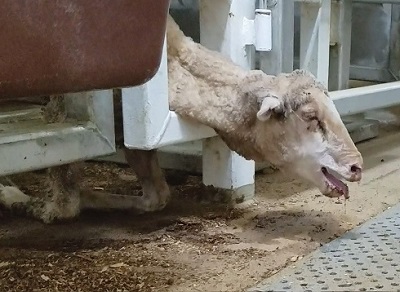Australian Sheep Won't Sail Into Middle East Summer
Australian livestock exporters have established a three-month moratorium in sheep shipments to the Middle East during the Northern Hemisphere summer.
The moratorium, to take effect from June 1, 2019, will mean no shipments of Australian sheep will depart any Australian port for the Middle East during the highest heat stress risk period of the northern summer.
Exporters will observe the moratorium while the industry develops new technology which could, in the future, address the heat risk challenges associated with shipments in June, July and August. Potential solutions being developed by the export research and development corporation, Livecorp, include improved detection and avoidance of temperature extremes and onboard dehumidification.
In addition to the moratorium, sheep exporters have agreed to initiate a program of transparency and onboard monitoring, to be designed and developed by LiveCorp. The program will improve transparency and communication with producers with regard to onboard conditions and the performance of shipments.
The moratorium is part of an on-going response to whistle-blower footage aired on 60 Minutes in April which showed thousands of sheep suffering severe heat stress; sheep caked in melted feces and urine; injured and sick animals left to die slowly; decomposed bodies left in pens with living sheep and pregnant ewes giving birth and their lambs dying.

Australian Livestock Exporters’ Council independent chairman Simon Crean said the moratorium is about maintaining and growing a strong, viable nine-month-a-year live sheep trade and, more broadly, securing the future of Australia’s livestock export industry.
In the seven years from January 2010 to December 2017, Australia’s live sheep exports to the Middle East contributed $2.06 billion to the Australian economy, exporting 16.6 million sheep over 258 voyages. While more than three-quarters of Middle East sheep voyages in the past seven years have recorded mortalities of less than one per cent, the majority of the 20 voyages when mortalities were above 1.5 percent occurred in the June to August northern summer period.
“June to August sheep exports to the Middle East are worth $55 million per annum, so the moratorium will, without any doubt, impact farm gate returns,” said Crean. “But this decision shows the genuine care exporters have for livestock – values we share with producers – and our commitment to the industry’s future.”
The moratorium will be enforced via the Australian Livestock Exporters' Council's newly established mandatory Code of Conduct that aims to change the culture of the industry and earn community trust. It requires members to proactively address and report on animal welfare issues. An advisory committee has also been set up to undertake incident analysis and develop policies to enhance animal welfare.
Crean reaffirmed the Council's commitment to implement the Livestock Global Assurance Program (LGAP), a program to provide animal welfare outcomes that are equivalent to, or improve on, those provided by the Federal Government’s Exporter Supply Chain Assurance System (ESCAS). LGAP seeks to drive greater effectiveness by extending accountability to the facilities in the supply chain, so that the in-market feedlots or abattoirs that actually own the livestock share the responsibility for ensuring their welfare.
“While the challenges facing our industry cannot be underestimated, neither can our determination to respond to them proactively and secure the industry’s future,” said Crean.
But for the RSPCA, the Council's action is “too little too late” to salvage doomed live sheep industry. There is no certainty for sheep farmers in live animal exports, and last-ditch promises by live exporters to “re-set” their practices must be viewed with the skepticism they deserve, says the RSPCA.
However, it did cautiously welcome the commitment from the live export industry association as a first step in protecting Australian sheep from the live export trade for at least three months of the year. The RSPCA says the moratorium must cover the entire highest-risk period of May to October, which is recognized by government as when the largest numbers of mortalities occur; and it must form part of a measured plan to phase-out the practice for good.
The RSPCA said today’s announcement was a strategic move by the live export industry to attempt to salvage its shattered social license, and is intended to forewarn the few remaining live sheep importers so they can plan to stockpile animals in the lead-up to the Middle Eastern summer next year.
The RSPCA also said the announcement was an attempt to pre-empt the looming release of reviews of live export standards (ASEL) and a new heat stress risk assessment (HSRA) model; both of which are likely to confirm that good animal welfare and live sheep export are incompatible.

that matters most
Get the latest maritime news delivered to your inbox daily.
The RSPCA also said this latest announcement must be seen for what it is: a desperate and last-ditch attempt by a dying industry, to prolong practices that Australians no longer want or support. “Australians must never forget this is an industry that has fought vigorously against improvements for decades and which oversaw and accepted the routine suffering and disastrous conditions in the trade,” said the RSPCA.
The veterinarian organization Vets Against Live Export (VALE) said that if the industry wanted to be credible they would have voluntarily ceased export between May 1 and October 31; the Australian Veterinary Association do not recommend export during this period and nor do VALE. "The industry is still trying to claim the Awassi Express is an isolated incident. In reality heat stress and heat crashes have occurred regularly in this trade since the 1990s, and industry has been well aware of the issue but pushed on regardless….until they were found out.”
